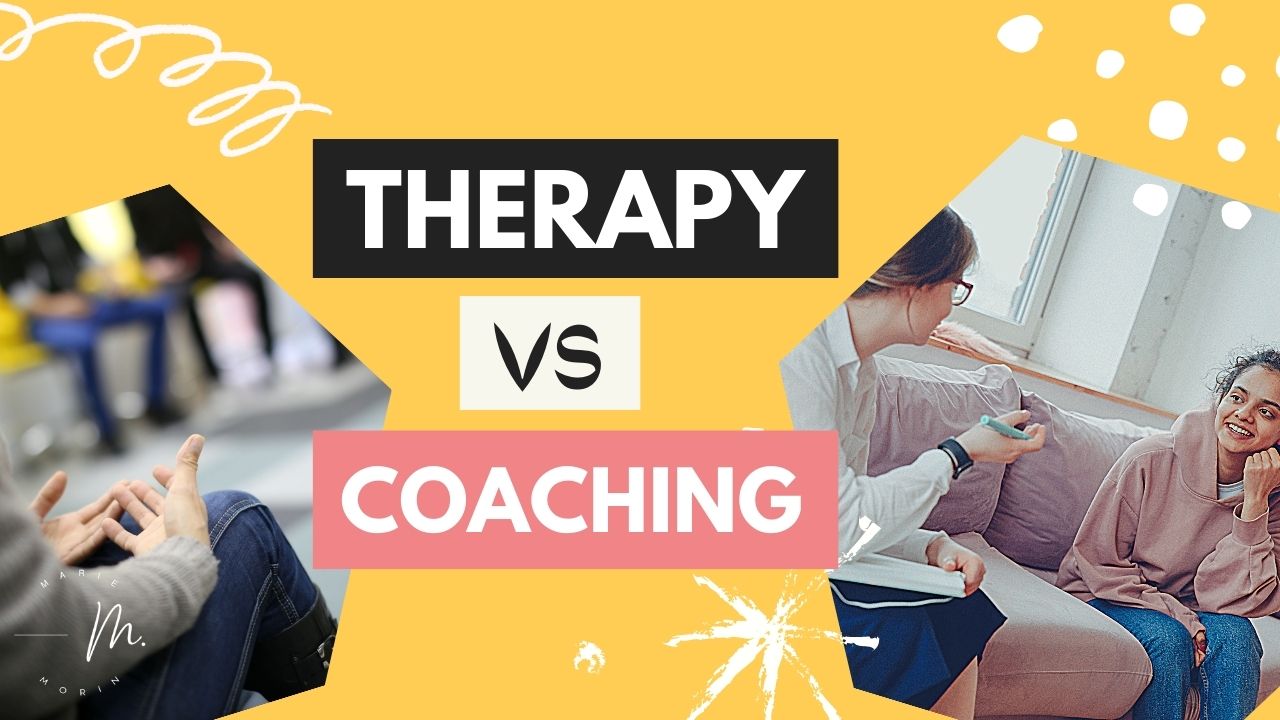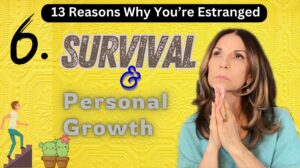Have you wondered what the difference is between therapy and life coaching?
The significant difference between therapy and life coaching is where each put their concentration or focus, what goals they address, and their credentials.
The article explains circumstances that might bring someone to either coaching or therapy. Learning what they focus on, what goals they are concerned with and what credentials they have will help you to determine which is right for you.
You will learn the differences between therapy and coaching, their respective focus, goals, and required credentials.
Therapy Focus
Therapy focuses on mental health and emotional healing. Therapy will examine your mental health history, your family of origin, your past, and other important information about you. Usually, an interview is done, and forms are filled out. If there is a diagnosis, a therapist will determine a diagnosis and then create a treatment plan to follow so that the individual can accomplish the client’s goal or goals.
The first part of therapy is in getting to know each other or building rapport. It is important to trust the person so that you can speak freely and honestly.
Therapy focuses on the client’s unique gifts and strengths to help them maximize their transformational objectives by using researched-based tools, techniques, and methods.
Think of Mental Health as being on a Continuum
Mental health treatment will help the individual get to at least their baseline to better function, process trauma, process grief, and address symptoms such as social anxiety, depression, anxiety, obsessive thoughts, and behaviors.
The baseline in mental health refers to a measure or position where the client is at their average well-being state. For example, suppose someone is struggling with an unusually high degree of anxiety but, on average, they are slightly anxious. In that case, you might describe that person as having anxiety above their baseline.
Life Coaching Focus
Life coaching focuses on setting and achieving goals; a life coach will offer guidance, assist the client in understanding their goals, overcome obstacles, overcome problematic mindsets, and create a roadmap to achieve their goal.
Life coaching can help someone who is at baseline, can function well, they may have anxiety and depression as other humans, but they feel stuck and want to get out of stuck so they can achieve a goal they have been unable to get to without the assistance of a trained coach.
A life coach helps people make progress in their lives to achieve personal goal fulfillment. Life Coaching focuses on the client’s unique gifts and strengths to help them maximize their transformational objectives.
Therapy Goals
These goals often include relief from symptoms of depression and anxiety. They help the client to unravel and improve relationship stress, stress management skills, and emotional regulation. Often, when someone seeks therapy, they recognize that they are having difficulty in their functioning, relationships, stress level, or emotional regulation.
They may also feel like they’re not where they want to be in optimal life satisfaction. In other words, they feel dissatisfied or unhappy. Some have a diagnosis and come to therapy to help them cope with symptoms. Not everyone who seeks treatment comes with the same set of needs.
Therapists provide personal encouragement, build and maintain rapport and trust, provide tools, use techniques and interventions to assist clients in their wellness goals. They are empathetic and non-judgmental; they do not tell clients what to do but rather help the client gain insight so that the client discovers what is best for them. Therapists are problem solvers, good listeners, and trained to ask pointed questions for the client to make their conclusions.
Coaching Goals
Life coaches assist their clients in improving their careers, their relationships, and their daily lives.
Coaching goals accommodate what the client describes as their objective. For example, perhaps the client would like to write a book but finds they cannot make time to write. The client has mindset roadblocks that contribute to their inability to get started and follow through. The coach would assess the specific objective for their work together, determine where to progress towards their aim, and discuss strategies and out-of-the-box options. The life coach would then be sure to encourage, get a commitment for action, and hold the client accountable.
Therapist or Counselor?
Many use the terms counselors and therapists interchangeably. Therapy is therapeutic, meaning there is a treatment of bodily, mental, or behavioral disorders.
Counseling is defined as guidance by a professional who uses psychological methods or techniques. Counseling may include an interview, testing, or assessments.
We will use the term therapist to note those professionals who counsel others in the remedial treatment of bodily, mental, or behavioral disorders.
Credentials and Licensing
Therapists use their clinical training, at least a master’s level education, and two or three years of supervised experience working with clients. Psychologists complete a doctoral degree for their professional requirements.
The professions that are qualified to do mental health therapy included psychologists, social workers, mental health counselors, and professional counselors, must have a license to practice in the state they intend to practice.
The regulating agency requires the professional to continue education and to renew their license regularly. They are mandated to be current in the knowledge of mental health awareness. They must follow the ethical guidelines of their profession to do no harm and have strict criteria for professional standards.
Coaching Credentials
Coaches do not need to have education or credentials to operate as a coach.
However, many coaches have been through vigorous training programs that require some experience before they are certified by that program to take on private coaching clients.
There is no universal state or federal regulating body or agency that oversees coaching.
Life coaches do not need a license to practice.
Many life coaches have certificates that have specific training that may or may not be extensive.
Which is best for you? Therapy Versus Coaching?
Do I need a Coach?
If you are a high-functioning individual with unmet goals and are ready to get started, inquiring about coaching may be an option.
Remember, coaching is about going from A to B, setting goals, strategies, and designing a road map to your goals.
Often individuals struggle with everyday challenges and would undoubtedly benefit from the services of a life coach.
Procrastination, poor time management, and perfectionistic thinking are a few areas in which coaching is highly effective.
Coaches are good at keeping people on target, keeping them accountable, cheering them on, and going the distance with the client to accomplish their goal or goals.
Do I Need a Therapist?
If, on the other hand, you find yourself off your baseline and you are finding it difficult to get back there on your own, then therapy may be something to consider.
Perhaps you’ve been doing well, and you’ve experienced difficult circumstances, and you feel the difference, then therapy would probably be helpful.
Anyone who is struggling with depression and has had suicidal thoughts should speak to a mental health professional. It is essential not to delay; go to your nearest emergency room.
There is no hard rule that states you are stuck with either a coach or a therapist. You get to interview the person, decide if they are a good fit for you, and do a trial run. You may decide you don’t jive with the person. Then you start the search again until you find the right therapist or coach just for you.
Remember, the person you see works for you, they are there for you, and you get to decide if you are a good fit together.
The most important takeaway is that the decision is yours to make. You know yourself best.
This article discussed the differences between therapy and coaching, their respective focus, goals, and required credentials.
I shared with you the differences between coaching and therapy, and how to determine which one is right for you.





